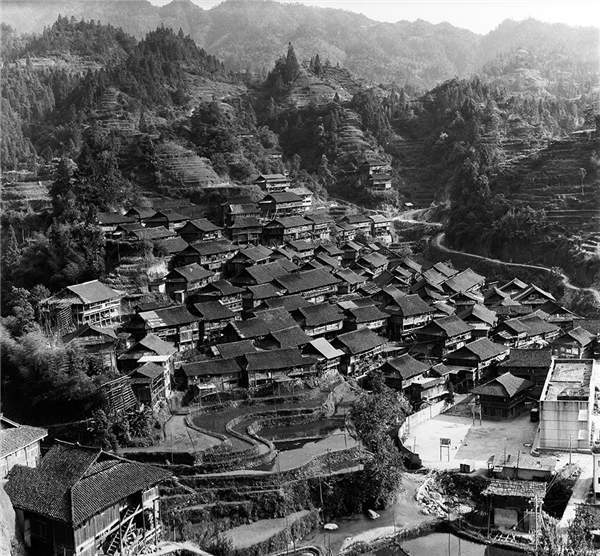 |
|
Tianbiantun, a settlement in the village of Yaogao in the Guangxi Zhuang autonomous region. |
"The whole society is changing, and the original, simple life of the Miao people will be diluted and altered in the process of modernization and urbanization. I think we should keep some of their culture and cherish the memories."
Jiang had often doubted the worth of his efforts until he met professor Liu Shuyong, the dean of art and design at the Institute of Culture and Media under the Central University of Finance and Economics in Beijing.
"He told me that the village was nothing extraordinary, but that in itself gave it universal significance," Jiang recalls.
With the encouragement, Jiang persevered. He collected a large amount of materials to help him better understand Yaogao.
"At first, the villagers avoided my lens. My wife and I tried to make friends with them and we did make a lot of good friends. We became so familiar with each other that they eventually took no notice of our cameras. So we captured many vivid, natural images."
Many villagers had never seen photos before. Every time the couple went there, they gave the villagers prints of photos they had taken previously. They have handed out more than 2,500 photos.
"Once we took a picture of an old lady. But the next time we couldn't find her. A neighbor told us she had passed away. She had never seen a photo in her life."
Jiang and his wife took hundreds of thousands of pictures featuring the environment, houses, portraits, costumes, weddings, childbearing, food, education, medical treatment, farming, transportation, celebrations, funerals and other rituals in the area.
Few villagers are staying to continue farming as most have moved to towns over the past decade. Many traditional wooden houses have been replaced by brick buildings. Only the elderly wear traditional attire, as young people prefer jeans and Western-style clothes.
|
|
|
|
|
|
|
|
